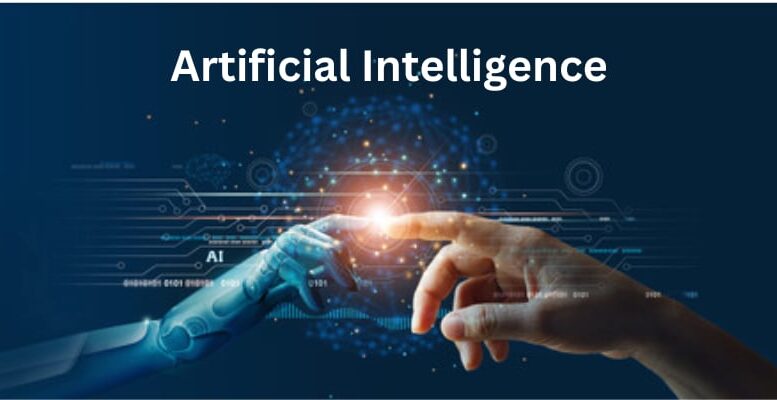Artificial Intelligence continues to transform industries and daily life, driving innovation at an unprecedented pace. With passages in machine learning, automation, and data processing, AI’s future is set to bring even more profound changes. From healthcare to cybersecurity, AI’s role is expanding rapidly. Understanding these future trends is key to staying ahead in a technology-driven world. Join the Artificial Intelligence Course in Chennai to assist in mastering AI techniques.
Advancements in Natural Language Processing (NLP)
Natural Language Processing continues to evolve rapidly, becoming more sophisticated in understanding and generating human language. AI models like GPT are gaining the ability to interpret context more accurately, engage in more natural conversations, and translate languages more efficiently. The next wave of NLP advancements is expected to improve AI’s comprehension of emotions, subtleties, and cultural contexts, making interactions more human-like.
Ethical AI and Bias Mitigation
As AI becomes more combined into everyday applications, concerns around ethics and bias are growing. Companies and researchers are focusing on creating fair and unbiased AI systems. This includes ensuring AI decisions are transparent and building algorithms that can audit themselves for biases. The future of AI will likely see more emphasis on accountability and the development of frameworks for ethical decision-making.
AI in Healthcare
AI’s impact on healthcare is becoming more pronounced with advancements in diagnostic tools, personalized treatment plans, and predictive analytics. Future trends suggest that AI will play a critical role in medical imaging, drug discovery, and even robotic-assisted surgeries. Additionally, AI systems are expected to help predict disease outbreaks and manage public health on a larger scale.
Internet of Things and Artificial Intelligence
Added to this, an integration of AI with IoT devices offers smarter homes, cities, and industries. AI-driven IoT systems can interpret large volumes of data in real time. This further results in optimized operations and improved efficiency. In the next years, we will witness more AI-powered IoT systems in the agriculture, manufacturing, and transportation sectors, where predictive maintenance, autonomous systems, and real-time decision-making dominate. Enrol in the Artificial Intelligence Course in Bangalore will enhance understanding of AI concepts.
Generative AI and Creativity
Generative AI models are evolving beyond simple content generation. Video games, music, artwork, and design prototypes are all produced with them. Given AI’s enormous creative potential, future advancements will probably concentrate on improving these generative models’ usability and adaptability for producers in a variety of sectors. It is anticipated that AI will become more capable of working with humans in creative processes, which would boost innovation.
AI in Cybersecurity
As cyber threats are getting more and complex, the role of AI is indispensable in cybersecurity. AI triggers patterns and irregularities that make detection an earlier form of instant threat protection. Indeed, trends indict that tomorrow will see AI systems capable of self-defending in real-time. These kinds of malicious machineries are likely going to grow in sophistication, which means that security tools employing AI will need to adapt or develop in lockstep.
AI in Autonomous Systems
AI is what we call the technology used by Sequential Systems, with self-driving cars and drones being one of the most visible but exciting examples of AS. Yet, these technologies continue to improve along the trends of more secure, more reliable and more scalable. Predicted also to influence industries from logistics to agriculture and even construction — automated AI machines will be able to perform without human interference.
AI and Augmented Reality (AR)
Artificial intelligence will enrich it the more, interacting with augmented reality. Combining AI with AR can lead to smarter applications in education, retail, and gaming. In the future, AI will allow AR systems to adapt in real-time to users’ environments, providing tailored content and insights based on context and preferences.
AI for Personalization
One of the biggest trends in AI is personalization, especially among marketers, e-commerce players and customer service. Using the AI, you can analyze videos based on how users behave and which receives the best engagement. This precise personalization will be much more advanced in the future through AI, which one day may anticipate an individual´s needs and solve issues before the user is even aware they need a solution thus making it easier to interact.
Energy-Efficient AI Models
The growing computational demands of AI are leading to concerns about energy consumption. Future trends in AI research are focusing on making AI models more energy-efficient without compromising performance. This includes developing algorithms that require less processing power and leveraging quantum computing to speed up AI tasks while using less energy. As sustainability becomes a global priority, energy-efficient AI will be essential in the coming years.
A new future of AI enables entirely new levels of performance across multiple dimensions, from claims processing efficiency improvements to innovation enablers. As AI gets better and better, the conversation about it is going to center around issues of ethics and sustainability. The future of AI will be such, that it is obligatory to follow the development (even trends) in ones mind — not doing so seems impossible.

Be the first to comment on "What Are the Future Trends in Artificial Intelligence?"